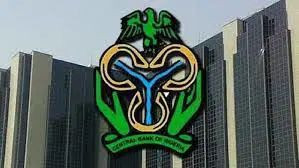ARTICLES
Government Intervention Loans in Nigeria: CBN and BOI Funding Options You Can Apply For
Government Intervention Loans in Nigeria: CBN and BOI Funding Options You Can Apply For

Access to affordable credit has always been a challenge for entrepreneurs, farmers, and small businesses in Nigeria. Commercial bank loans often come with high interest rates, strict collateral requirements, and lengthy approval processes that discourage many business owners. To solve this challenge, the Nigerian government, through agencies like the Central Bank of Nigeria (CBN) and the Bank of Industry (BOI), has introduced several intervention loan schemes to support different sectors of the economy.
These loans are designed to promote economic growth, encourage entrepreneurship, create jobs, and reduce poverty by making credit available at single-digit interest rates with flexible repayment terms. For business owners and individuals looking for affordable funding, government intervention loans provide opportunities that private lenders cannot match.
What Are Government Intervention Loans?
Government intervention loans are special financing packages created to support individuals, small businesses, and industries that play vital roles in Nigeria’s economy. Unlike commercial bank loans, which are primarily profit-driven, intervention loans are subsidized and regulated by government agencies.
These loans often target sectors like agriculture, manufacturing, health, education, real estate, and creative industries. The main purpose is to encourage production, reduce dependence on imports, and stimulate economic activities across the country.
Role of the Central Bank of Nigeria (CBN) in Intervention Loans
The Central Bank of Nigeria plays a major role in providing intervention loans. Through development finance initiatives, the CBN collaborates with commercial banks and microfinance institutions to make funds available at affordable rates. Some of the most popular CBN-backed loans include:
- Anchor Borrowers’ Programme (ABP): Focused on supporting smallholder farmers to boost local food production.
- Agricultural Credit Guarantee Scheme Fund (ACGSF): Provides guarantees to banks lending to farmers.
- Agri-Business, Small and Medium Enterprises Investment Scheme (AGSMEIS): Offers loans to small businesses at single-digit interest rates.
- Creative Industry Financing Initiative (CIFI): Targets entrepreneurs in film, music, fashion, and IT sectors.
- Healthcare Sector Intervention Fund: Provides loans for hospitals, clinics, and pharmaceutical companies.
Role of the Bank of Industry (BOI)
The Bank of Industry is another vital institution providing government-backed loans. BOI focuses on funding manufacturers, industrialists, and entrepreneurs in productive sectors. Some of its intervention programs include:
- BOI MSME Loans: Funding for micro, small, and medium enterprises across Nigeria.
- Graduate Entrepreneurship Fund (GEF): Supports young graduates who want to start businesses.
- BOI Youth Entrepreneurship Support Programme (YES-P): Provides loans and training for young entrepreneurs.
- Renewable Energy Fund: Supports businesses investing in clean and sustainable energy.
- Fashion and Beauty Industry Loans: Designed for SMEs in the creative and lifestyle industries.
Benefits of Government Intervention Loans
Government-backed loans offer several advantages that make them attractive for entrepreneurs and households:
- Low interest rates: Often as low as 5–9% compared to commercial rates above 20%.
- Flexible repayment terms: Repayment periods may stretch between 3 to 10 years.
- Collateral support: Some schemes require little or no collateral for micro and small businesses.
- Sector-specific funding: Loans are tailored to the needs of different industries.
- Business development support: Some programs include training and mentoring for entrepreneurs.
Challenges Associated with Intervention Loans
Despite their benefits, accessing intervention loans in Nigeria is not always easy. Common challenges include:
- Bureaucratic processes: Application procedures can be lengthy and complicated.
- Awareness gap: Many business owners are unaware of available government loan programs.
- Limited disbursement: Funds are not always sufficient to meet the high demand.
- Political influence: Some loans may be influenced by connections rather than merit.
- Repayment defaults: Poor repayment culture by beneficiaries affects sustainability of schemes.
How to Apply for Government Intervention Loans
Applying for intervention loans requires preparation and compliance with specific requirements. The process generally involves:
- Business registration: Most programs require proof of formal business registration with CAC.
- Business plan: Applicants must present a detailed business plan showing feasibility and repayment strategy.
- Application through banks: Many CBN-backed loans are accessed through commercial banks or microfinance banks.
- Submission of documents: BVN, tax identification number, and valid identification are often required.
- Loan approval and disbursement: Once applications are verified, funds are released to the beneficiary’s account.
Examples of Popular Government Loan Programs in Nigeria
- TraderMoni and MarketMoni: Microloans for petty traders and artisans under the Government Enterprise and Empowerment Programme (GEEP).
- NIRSAL Microfinance Bank Loans: Widely used for agricultural financing and small business support.
- CIFI Loans: Supporting Nollywood producers, fashion designers, and IT developers.
- Healthcare Sector Loans: Providing funds for upgrading hospitals and producing medical supplies.
Tips for Accessing Government Loans Successfully
Many applicants struggle to secure intervention loans due to poor preparation. Here are tips to increase approval chances:
- Prepare a solid business plan with realistic financial projections.
- Maintain proper records including bank statements and tax documents.
- Register your business officially to qualify for SME-related loans.
- Apply early since many programs have limited funds.
- Repay on time to build credibility for future applications.
Discover more from 9jaPolyTv
Subscribe to get the latest posts sent to your email.

 ARTICLES22 hours ago
ARTICLES22 hours agoCreditPRO Finance Secures CBN Licence, Expands SME Loan Solutions Across Nigeria

 POLYTECHNIC NEWS21 hours ago
POLYTECHNIC NEWS21 hours agoPolytechnic Students Demand Sack of Minister Bosun Tijani Over Data Breach, Failed 3MTT Program

 ARTICLES22 hours ago
ARTICLES22 hours agoJapa: 3 Countries with Easy Visa Options Beyond the US, UK, and Canada

 ARTICLES22 hours ago
ARTICLES22 hours agoFrom Foamy Urine to Fatigue: 6 Early Signs of Kidney Damage You Shouldn’t Ignore

 ARTICLES21 hours ago
ARTICLES21 hours agoHow to Achieve Financial Independence in Your 20s: Expert Money Tips for Young Adults

 ARTICLES21 hours ago
ARTICLES21 hours agoWhole Eggs vs. Egg Whites: Which One Packs More Protein and Better Nutrition?

 ARTICLES22 hours ago
ARTICLES22 hours agoIs It Healthy to Eat the Same Breakfast Every Day? What Nutrition Experts Say

 EDUCATION20 hours ago
EDUCATION20 hours ago10 US Private Colleges Offering Scholarships That Cover Over Half of Tuition Costs




































